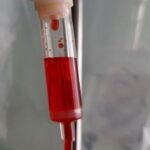Hearing the words breast cancer can instantly create fear.
If you’re here, you might have noticed something unusual, or maybe you’re simply trying to stay informed.
Either way, you are taking an important step — understanding more about breast cancer signs, risk factors, and how to act early.
Let’s walk through it together, simply and clearly.
What Are the Early Signs of Breast Cancer?
Recognizing the early signs of breast cancer can make a huge difference in successful treatment.
Some signs are easier to notice than others. Here are the most common ones:
-
A lump or thickening in the breast or underarm area
-
Changes in the size, shape, or appearance of a breast
-
Dimpling or puckering of the breast skin
-
Nipple changes, such as turning inward or unusual discharge
-
Redness or flaky skin in the nipple area
-
Swelling of all or part of a breast (even if no lump is felt)
-
Pain in the breast or nipple area (less common but possible)
Important:
Not every lump is cancer.
But any new lump, change, or symptom should be checked by a doctor without delay.
Understanding Breast Cancer Risk Factors
You might wonder, “Am I at risk even if I feel fine?”
Here are some known breast cancer risk factors:
-
Family history:
Having close relatives (mother, sister, daughter) with breast cancer increases your risk. -
Age:
Risk rises as you get older, especially after 50. -
Genetic mutations:
Inherited changes in genes like BRCA1 and BRCA2 can greatly increase risk. -
Hormonal factors:
Starting periods early or menopause late can slightly raise the chance. -
Lifestyle habits:
Obesity, drinking alcohol, lack of physical activity, and unhealthy diets are linked to higher risks. -
Previous radiation exposure:
If you had radiation therapy to the chest as a child or young adult.
Understanding your risk doesn’t guarantee cancer — but it reminds us to stay alert.
How Is Breast Cancer Diagnosed?
If you or your doctor suspects anything unusual, several tests can help with a breast cancer diagnosis:
-
Mammogram:
This is an X-ray of the breast and the most common early detection test. -
Ultrasound:
Often used along with mammograms, especially to check a lump. -
MRI (Magnetic Resonance Imaging):
Gives a more detailed image, especially useful in high-risk cases. -
Breast Biopsy:
If something suspicious is found, a small sample of tissue is taken to check for cancer cells.
A biopsy is the only way to confirm if it’s cancer.
Note:
A biopsy sounds scary, but it is safe and necessary. Early diagnosis saves lives.
Steps to Take if You Notice Symptoms
If you see any breast cancer symptoms, here’s what to do:
-
Don’t Panic
Many breast changes are non-cancerous, like cysts or infections. -
Schedule a Doctor’s Appointment
The sooner you get checked, the better your chances of early detection. -
Prepare for the Visit
Write down any changes you noticed, when they started, and any family history of cancer. -
Follow Through
If your doctor recommends tests or a specialist visit, don’t delay. -
Stay Informed
Ask questions. Understand each step of your cancer test or cancer scan process.
What Are the Treatment Options for Breast Cancer?
If a breast cancer diagnosis is confirmed, the next step is creating a treatment plan.
Your options might include:
-
Surgery:
To remove the cancerous tissue (lumpectomy) or the whole breast (mastectomy). -
Radiation Therapy:
Using high-energy rays to kill remaining cancer cells. -
Chemotherapy:
Strong medicines to kill cancer cells or stop them from growing. -
Hormonal Therapy:
If your cancer is hormone-sensitive, medicines can block hormones. -
Targeted Therapy and Immunotherapy:
Newer treatments that attack cancer cells more precisely, often with fewer side effects.
Your doctor will recommend the best cancer treatment options based on the cancer stage, type, and your overall health.
Breast Cancer Awareness Saves Lives
Knowledge is powerful.
Even if you are healthy today, understanding breast cancer signs and breast cancer symptoms helps you take action early — for yourself or someone you love.
Regular self-exams, yearly checkups, and awareness of changes in your body can make all the difference.
You are not alone in this.
Whether you’re seeking answers, facing fears, or just staying informed — you are taking the right step toward protection and healing.



